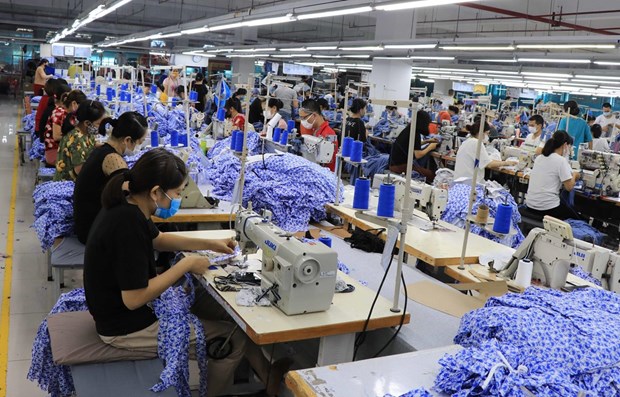Reform should be a priority in post-COVID-19 economic recovery
 Institutional reform in line with international practices in the context of integration, recovery and sustainable development is a big task after COVID-19. (Photo: VNA)
Institutional reform in line with international practices in the context of integration, recovery and sustainable development is a big task after COVID-19. (Photo: VNA)Hanoi (VNA) - The fourth wave of the COVID-19 epidemic which lasted from the end of April to September has severely hit many Vietnamese localities, affecting their economic growth, including geopolitical competition, trade tensions and challenges related to macroeconomic stability.
Therefore, how to create a momentum for institutional reform in line with international practices in the context of integration, recovery and sustainable development for the economy in the 2021-2025 period is a big task.
Participants at the high-level consultative workshop on “Reform towards sustainable development and international economic integration: focus and roadmap to 2025”, emphasised the need to maintain reform during the recovery process and the requirement to reform in parallel with economic recovery.
The participants highlighted the importance of mobising resources for new economic activities in a sustainable way.
It is necessary to implement effective international economic integration, create impetus for institutional reform, take advantage of incentives from new-generation free trade agreements and improve the internal strength of the economy, they said, adding that attention should be paid to the private sector and the autonomy of the economy.
Tran Thi Hong Minh, director of the Central Institute for Economic Management, said economic difficulties have once again tested the will and determination of Vietnam.
“We still see bright spots in economic institutional reform thinking by the adoption of many solutions to create motivation for economic recovery and development, effectively carry out international economic integration, promote green growth and sustainable development”, Minh said.
According to Can Van Luc, chief economist of the Bank for Investment and Development of Vietnam, the COVID-19 pandemic has left a negative impact on the economy in recent times and may last for the next few years.
Currently, Vietnam has to ensure three goals, namely pandemic prevention, economic recovery and social welfare.
Luc said that it is necessary to quickly overcome the consequences of COVID-19. Accordingly, digital transformation and digital skills should be carried out. A better social safety net system should be created together with the resilience of the financial system.
Countries that can adjust their model appropriately and have the ability to coordinate between health and the economic policies as well as promulgate a quick and consistent policy mechanism will overcome the pandemic more effectively, he said.
Entering 2021-2025 period, experts said the pressure of economic recovery and sustainable development requires businesses to improve internal resources. At the same time, business environment needs to be improved to ensure transparency and equitable resource allocation and be in line with international practices.
In addition, Vietnamese businesses also need more effective management in supply chain, especially in post-COVID-19 period, as well as deepening their participation in the global and regional value chains.
According to Luc the quality of legal documents and slow implementation of policies are the bottleneck that should be dealt with.
Experts said digital transformation facilitates Vietnam’s move to “go together” with the world rather than "follow or catch up with the world."
Tran Thi Hong Minh, director of the Central Institute for Economic Management recommended that in the coming time, it is necessary to promote technological innovation to create strength of the economy.
According to Tran Thi Hong Minh, expanding economic space is a relatively new issue associated with planning, promulgating regional linkage institutions, and expanding linkage space.
She said lessons from COVID-19 pandemic have shown that it is necessary to early overcome difficulties in planning and lack of regional linkage institutions./.












